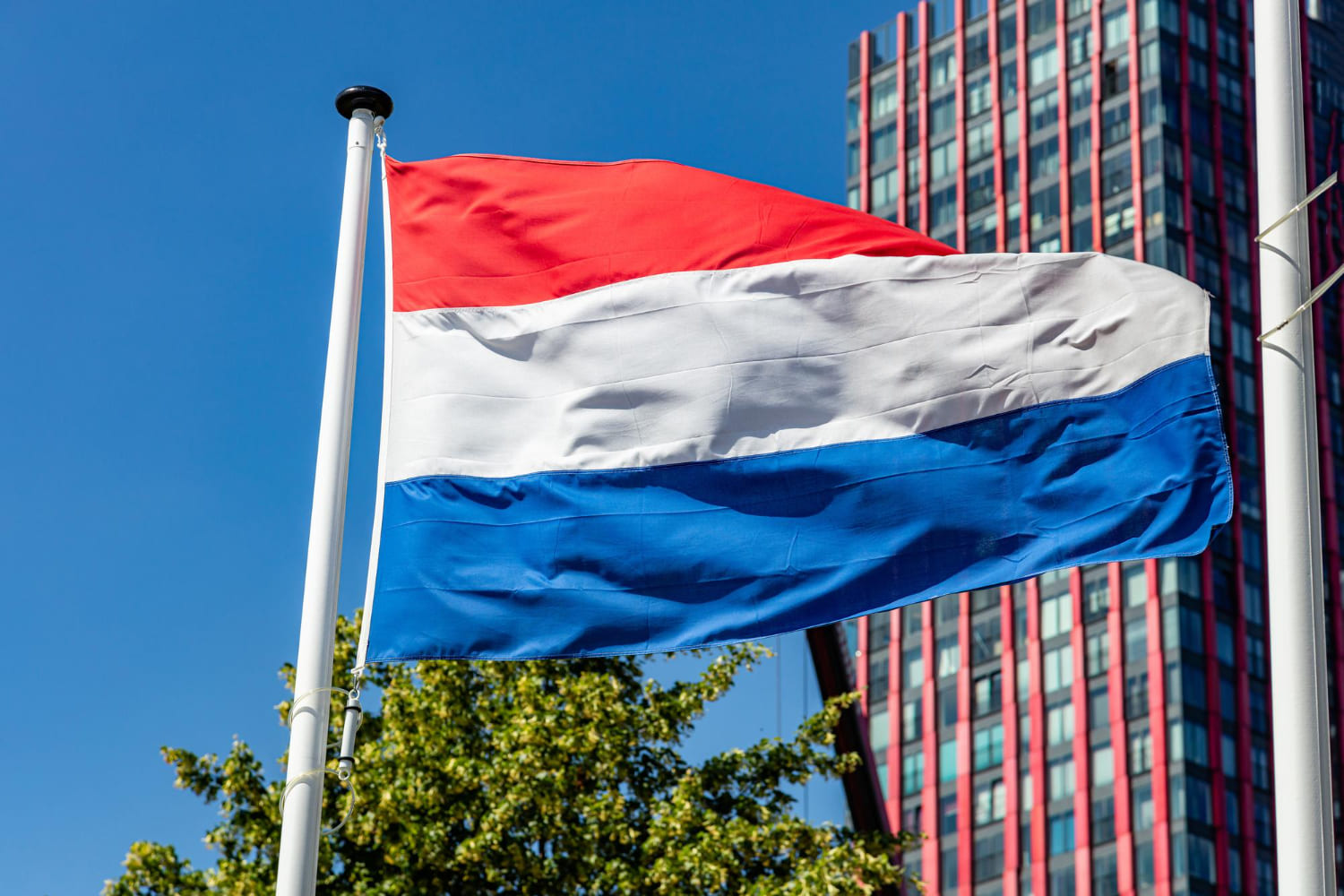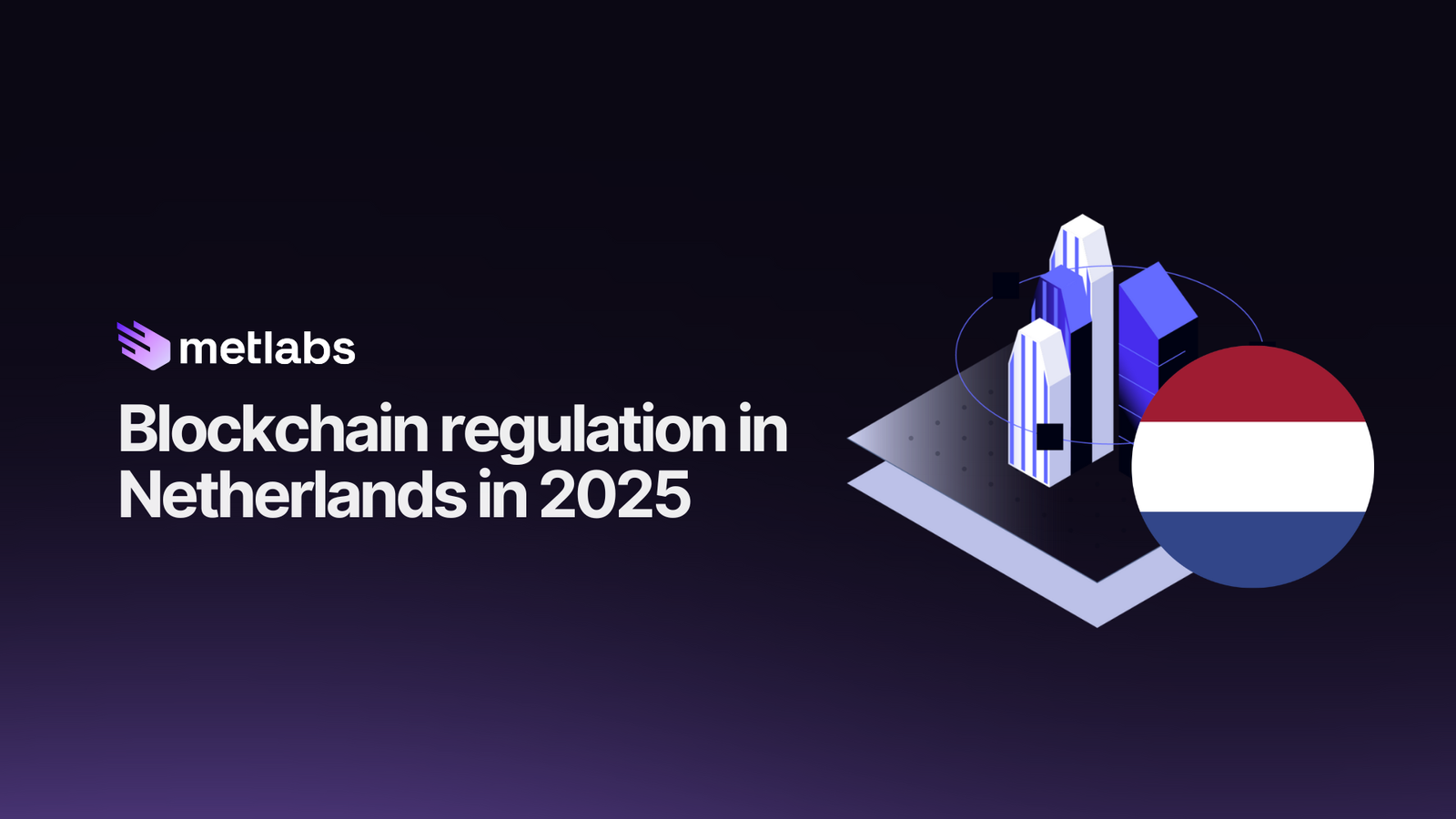The adoption of blockchain technology and asset tokenization is advancing at a rapid pace, but the real engine driving its global development is the existence of a clear, consistent and innovation-friendly legal framework.
Some countries have already established themselves as regulatory benchmarks, establishing specific rules for cryptoassets, DLT infrastructures and issuance of legally backed tokens. In this article we show you the relevant information about blockchain regulation in the Netherlands, which you can use as a guide if you are looking to operate internationally or evaluate different strategic locations.

Current legislation on blockchain and virtual assets in the Netherlands
MiCA Regulation (Markets in Crypto-Assets Regulation)
Establishes the EU’s first comprehensive legal framework for regulating cryptoasset issuers and service providers (CASPs). Covers stablecoins, utility tokens, electronic money tokens (EMTs), asset referenced tokens (ARTs), and custody or exchange platforms. Requires prior authorization, governance requirements, solvency, transparency, and user protection.
MiFID II (Markets in Financial Instruments Directive II)
European Directive that regulates the markets of traditional financial instruments and also applies to cryptoassets considered as financial instruments (e.g. security tokens). It establishes rules on transparency, investor protection, advisory services, order execution and prudential requirements for investment firms.
Prevention of Money Laundering Act (Wwft)
The Wwft implements the AMLD5 Directive in the Netherlands, requiring cryptoasset service providers to register with the DNB and comply with anti-money laundering and terrorist financing prevention obligations. This includes customer identity verification (KYC), transaction monitoring and suspicious transaction reporting. Failure to comply can lead to severe penalties or deregistration. The Wwft applies to both domestic and foreign entities operating in the country.
Cryptoasset Sandbox and DLT Pilot Regime in the Netherlands
The Netherlands actively participates in regulatory sandboxes linked to blockchain and cryptoassets. It is part of the European Blockchain Sandbox Initiative (EBSI), coordinated by the European Commission with 22 countries. In addition, authorities such as the DNB and the AFM have driven national sandboxes focused on fintech and crypto. These initiatives allow innovative projects to be tested under regulatory oversight.
Tokenization makes it possible to digitally represent real-world assets via blockchain, but for it to have legal value, a regulatory framework recognizing this operation is essential. The Netherlands adopts its own approach, establishing specific rules for the issuance, custody or trading of tokens. In this block we explain how asset tokenization is regulated from a legal point of view, taking an advanced jurisdiction such as the Netherlands as an example.
Regulation of asset tokenization in the Netherlands
The Netherlands allows tokenization of financial assets under the framework of the MiCA Regulation and the MiFID II Directive. Tokens representing financial instruments – such as stocks, bonds or fund shares – are subject to the same rules as their traditional equivalents, including authorization, governance and disclosure requirements overseen by the Authority for Financial Markets (AFM). Any public offering of tokens considered securities must have a prospectus approved by the AFM, in accordance with European regulations.
Tokenization of non-financial assets, such as real estate or art, is not specifically regulated, but may involve compliance with tax, civil or consumer protection regulations, depending on their structure. The MiCA Regulation also regulates the issuance and trading of utility tokens and stablecoins, provided they are not considered financial instruments, which provides a general framework applicable to various tokenization models.
Although there is currently no exclusive and formalized regulatory sandbox for tokenization projects in the Netherlands, the authorities show a proactive and collaborative attitude. The AFM and the Dutch Central Bank (DNB) maintain open channels for informal cooperation with innovative companies, offering early guidance and structured dialogue for projects exploring new forms of tokenization or DeFi models.
Regulatory bodies and authorities for digital assets in the Netherlands
Authority for Financial Markets (AFM)
The AFM is the entity responsible for the supervision of the financial markets in the Netherlands and plays a central role in the application of the MiCA Regulation. It licenses CASPs, reviews whitepapers and prospectuses for security token issues (STOs), and ensures transparency and investor protection. It also regulates advertising related to cryptoassets and assesses the risks associated with utility tokens. It collaborates with ESMA and other European regulators to ensure consistent supervision across the European Economic Area.
Dutch Central Bank (DNB)
The DNB oversees the country’s financial stability and acts as the competent authority for the registration of CASPs under the Wwft (anti-money laundering and anti-terrorist financing) Act. It evaluates internal compliance policies, requires effective KYC controls and supervises issuers of stablecoins, ensuring liquid reserves equivalent to 100% of the issued value. He also participates in the regulation of DeFi and institutional blockchain initiatives, providing technical expertise in financial innovation. Its approach combines prudential supervision with technological adaptation.
Financial Intelligence Unit of the Netherlands (FIU-NL)
The FIU-NL is responsible for receiving, analyzing and reporting suspicious transactions related to financial crimes, including those linked to crypto-assets. CASPs registered with the DNB are required to report activities that may be related to money laundering or terrorist financing. The FIU collaborates with national and international authorities to prevent abuses in the digital financial system. Its analysis helps detect illicit networks and emerging risk patterns in the use of digital assets.
Launching a business based on digital assets requires more than just technology: it is also necessary to comply with legal requirements such as licensing, registration and regulatory obligations. These conditions ensure that the business model is viable and sustainable over time, and that it complies with transparency and fraud prevention standards. In this section we explore what licenses are typically required and what compliance criteria blockchain companies operating in the Netherlands must follow.

What licenses and requirements are needed to trade cryptoassets in the Netherlands?
CASP License (MiCA)
CASP licensing is mandatory under the MiCA Regulation for exchanges, custodians and issuers of ART and EMT tokens operating in the Netherlands or the EU. The AFM grants or denies prior administrative authorization for CASPs, after consultation and collaboration with the Dutch Central Bank, especially when dealing with issuers of stablecoins (electronic money tokens, EMT, and asset referenced tokens, ART), where the Dutch Central Bank assumes a specific supervisory role.
Investment Firm License (ESI)
If a Dutch platform offers crypto derivatives (such as futures, options, CFDs or other financial products whose underlying is a cryptocurrency), those products are considered financial instruments under European and Dutch law. Therefore, the trader needs an investment firm license under MiFID II to be able to offer them legally.
AML/KYC Compliance
All crypto companies in the Netherlands must comply with the Prevention of Money Laundering Act, which in the Netherlands is based on the transposition of Directive (EU) 2018/843 (AMLD5). This includes the implementation of KYC processes, transaction monitoring, identification of beneficial owners and suspicious activity reporting. The Netherlands Financial Intelligence Unit (FIU-NL) monitors compliance with these obligations as an essential condition for obtaining and maintaining licenses.
Other regulatory requirements
Crypto companies in the Netherlands must comply with the DORA Regulation, in addition to minimum capital requirements and annual technical audits. DORA requires ICT risk management systems, cybersecurity, business continuity and regular digital resilience testing. It also mandates oversight of external technology providers and staff training in digital security. Compliance with DORA is mandatory to maintain the MiCA license.
Are you exploring developing your blockchain project in the Netherlands?
At Metlabs we help companies like yours and offer comprehensive support in the development of blockchain projects and tokenization of assets such as real estate, carbon credits, commodities, intellectual property, financial instruments, franchises and more, fully aligned with blockchain regulation in the Netherlands and international regulatory standards.
Contact us and find out how we can help you meeting all your business model needs, from technical validation and structuring to design, development and implementation of custom blockchain solutions, ready to scale from day one.



